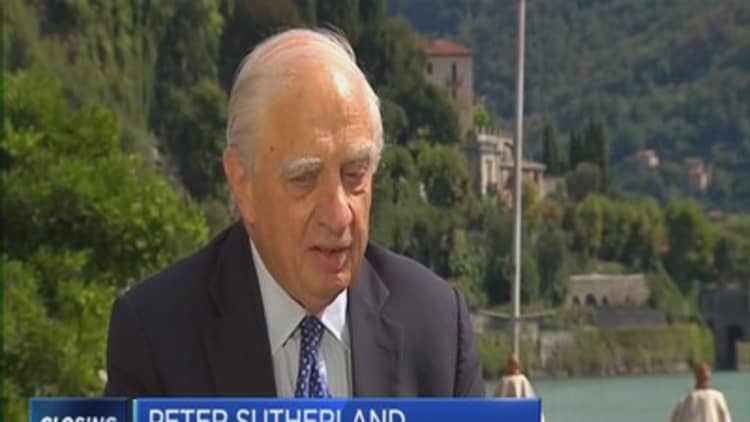

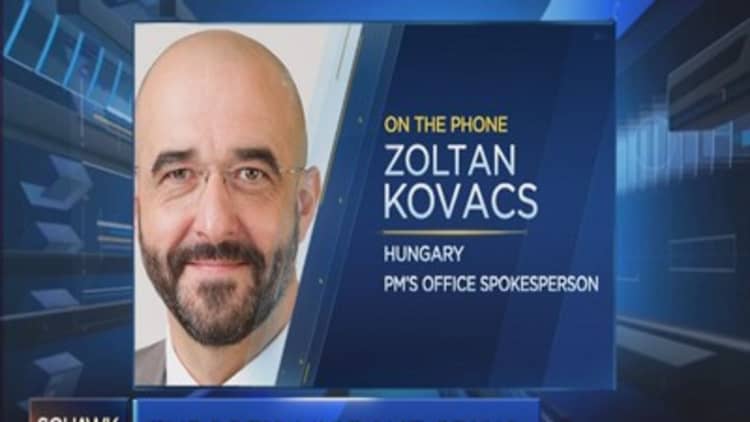
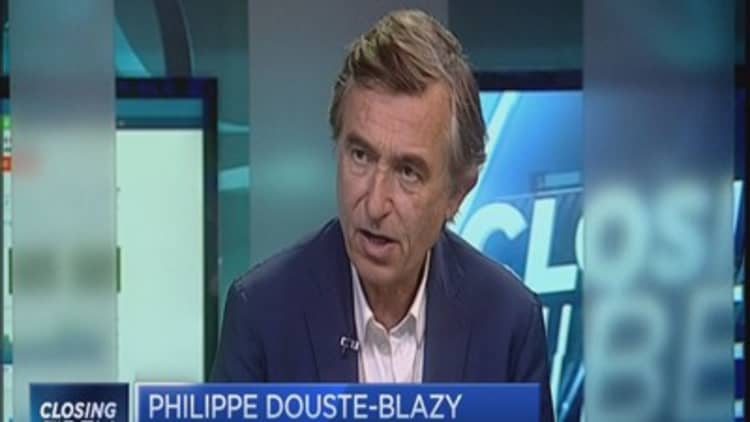
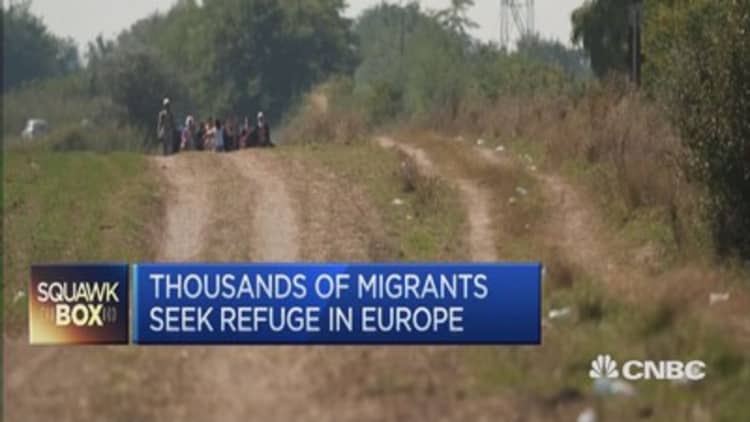
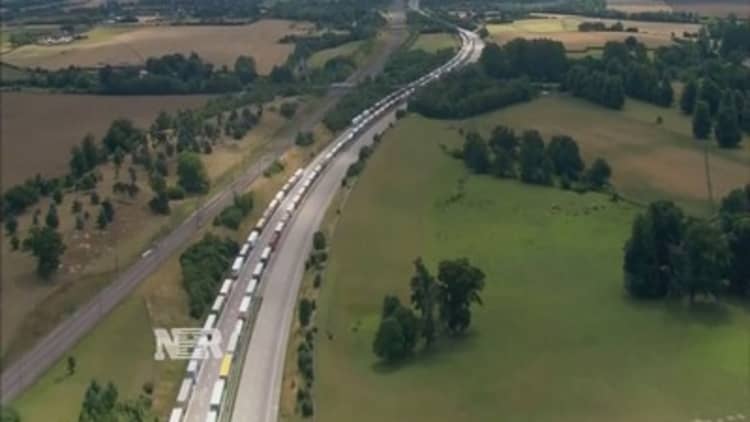
United Nations (UN) officials spoke out on Friday to criticise European countries for their response — or lack thereof — to the worsening migrant crisis across the region, as political leaders disagree over what to do.
"The real issue here is the (European Union) member states, who are not prepared to recognise the fundamental reality that either there is a European solution to this, where everybody shares with a sense of solidarity and responsibility, or there can be no great improvement to the situation," Peter Sutherland, UN Special Representative of the Secretary-General for International Migration, told CNBC on Friday from the international Ambrosetti Forum in Italy.
"If everybody retires behind their own borders and their own lines of defense, this will be a continuing and terrible disaster."
Also on Friday, Antonio Guterres, the UN High Commissioner for Refugees, said a divided Europe would benefit only smugglers and people traffickers, according to Reuters. Guterres appealed for the European Union to do more to helping migrants — many of them refugees fleeing the strife in Syria.
Record numbers of migrants are heading to Europe's borders, hoping to escape violence and instability across the Middle East and North Africa. Europe's border agency recorded 340,000 illegal entries into the European Union in the first seven months of the year.
More than 300,000 people had risked their lives this year trying to cross the Mediterranean, according to the UN Refugee Agency. More than 2,500 of those died or went missing in their attempt to reach Europe.
Read MoreBy numbers: Europe's migrant crisis
On Friday, Sutherland criticized European Union states, such as Slovakia, which have stated they will not take in non-Christian refugees.
"If a number of countries in central and eastern Europe that suggest they will not accept those who are not Christians as refugees, I find that quite incredible, having regard to the values that we all collectively espouse. That is unacceptable," he told CNBC.
Another eastern European country, Hungary, was heavily criticized this week for blocking migrants from travelling into the rest of Europe, by sealing off a main train station in its capital city of Budapest.
Hungary, which is a member of the European Union, is also rushing to build a four-meter tall fence along its border with Serbia in a bid to prevent more migrants from entering.
European countries located along the Mediterranean Sea, like Italy and Greece, have also received huge inflows of people. This has proved particularly challenging for Greece, as it grapples with its own economic and political crisis.
According to the UN Refugee Agency, of the 300,000 refugees and migrants who crossed the Mediterranean this year, almost 200,000 landed in Greece.
On Friday, former Greek finance minister, Yanis Varoufakis, termed the situation a "humanitarian crisis," in an interview with CNBC.
"When you have women, children, young people, old people arrive in their thousands on your shores, during a very specific point of time, this is clearly not an attempt by them to jump the queue of migration or anything like that, this is a humanitarian crisis," he told CNBC.
"What you have to do at that point is just throw your doors and gates open and the share the burden of doing this within Europe."
He added: "This sight of our leaders squabbling as to who is not going to do their humanitarian duty towards these people—this is going to remain as a stigma upon Europe."
Follow Luke on Twitter: @LukeWGraham

